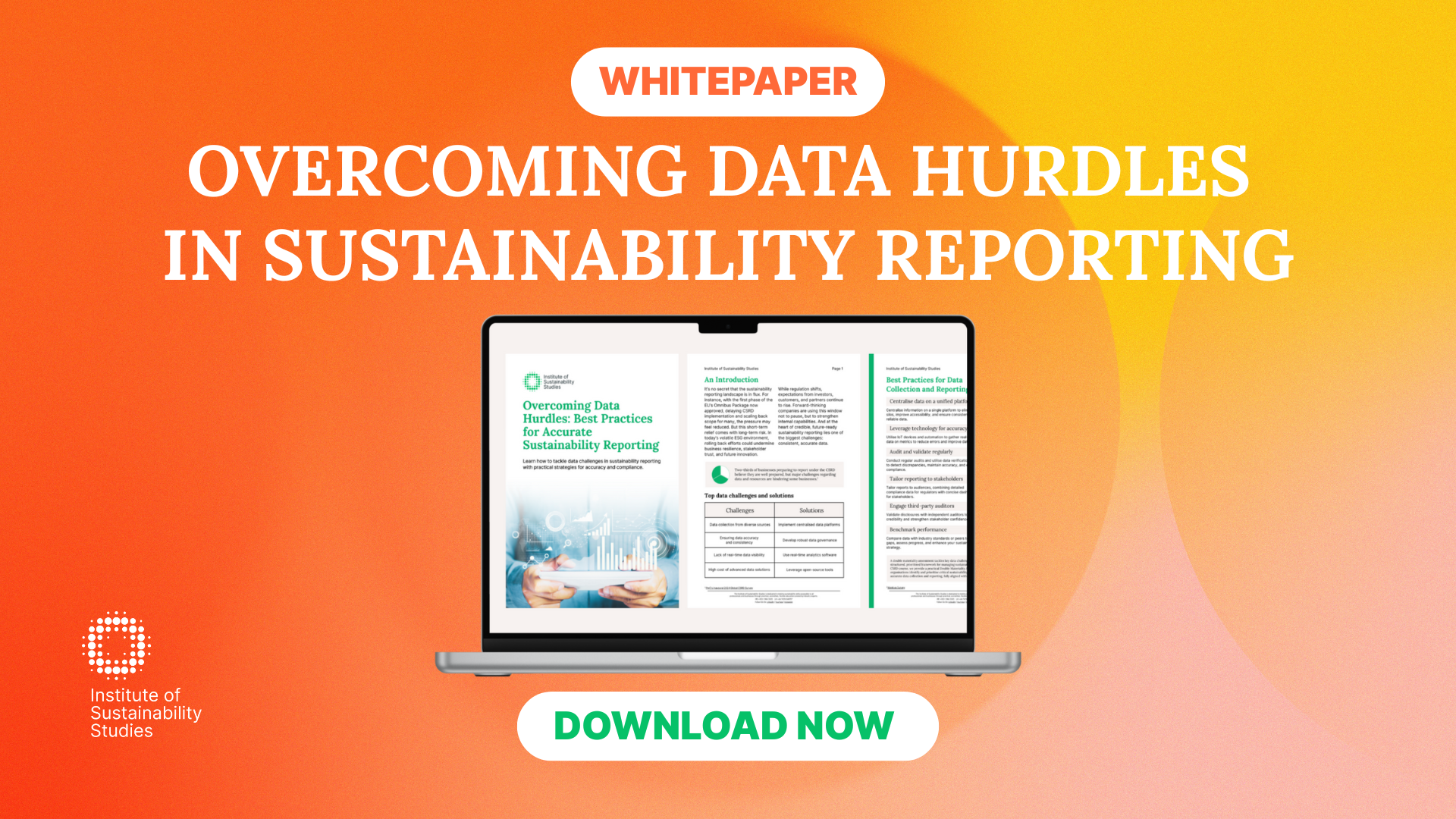Integrating environmental, social, and governance (ESG) factors into your business sustainability strategy is vital to achieving your goals and improving your level of resilience. Customers, employees, public authorities, and shareholders alike are demanding businesses address the impact their operations have on the planet and society.
Embedding responsible business practices into your DNA only has positive results that become much more significant over time. Some SMEs are hesitant to focus on environmental performance as they are concerned the changed focus will steer them away from making progress on their organisational performance.
However, you may be surprised to learn the two are interconnected and if you have strong environmental performance, you ultimately enhance your organisational performance. Continue reading as we dive into the relationship between environmental and organisational performance.
What is organisational performance?
Organisational performance refers to an enterprise’s ability to achieve its goals and optimise results. Today, organisational performance can be measured by how well a company can achieve their objectives in a state of constant change. It can be quite a confusing concept because it is subjective depending on the business, the market they operate in, and what they are trying to achieve.
When tracking organisational performance, it is essential to recognise its subjective element. Organisational performance is not solely connected to financial performance; there are other elements that trickle into what is considered successful organisational performance. These elements are determined based on what is important to the business.
For example, the things that best align with its core values like organisational culture, market share, shareholder value, or social systems. You may see organisational performance broken down into three categories – financial performance, shareholder value, and market performance. However, there is more to it like how well you adapt to change, for instance.
How does it drive environmental performance?
Now that you understand organisational performance a bit better, let’s look at how it connects to environmental performance. Where organisational performance is concerned with how well an enterprise can achieve its goals, environmental performance looks at the relationship between an enterprise and the environment.
It tracks and measures the impacts of a business on the environment. So how are the two kinds of performances connected? Focusing on environmental performance will ultimately have a knock-on effect on organisational performance. Improving your environmental performance is good for business.
For instance, focusing on implementing environmental initiatives in your organisation helps you cut costs, avail of additional business opportunities, and attract and retain employees. Not to mention, it enhances stakeholder information relations, improves your brand image to customers, and shows that you are complying with legislation. Cutting costs allows you to focus money on other parts of the business.
Moreover, having an engaged workforce can only help your business reach the next levels of success. Another big advantage of environmental action in business is that it improves your resilience and shows your ability to adapt to changes. This is at the core of what organisational performance is all about. With all this in mind, there is a big business case for focusing on environmental performance.
Summary
Organisational performance is vital for small and medium enterprises because it represents how well you can achieve your goals and optimise results. However, in the current climate, it is also essential that all businesses – big and small – make strides to tackle the environmental challenges we are currently facing.
Focusing on your environmental performance does not have to mean moving away from building a profitable business that achieves its goals. Rather, embedding environmentally responsible business practices is how you will succeed in creating a thriving business that can adapt to changes.
Dedicated to harnessing the power of storytelling to raise awareness, demystify, and drive behavioural change, Bronagh works as the Communications & Content Manager at the Institute of Sustainability Studies. Alongside her work with ISS, Bronagh contributes articles to several news media publications on sustainability and mental health.
- Bronagh Loughlinhttps://instituteofsustainabilitystudies.com/insights/author/bronagh/
- Bronagh Loughlinhttps://instituteofsustainabilitystudies.com/insights/author/bronagh/
- Bronagh Loughlinhttps://instituteofsustainabilitystudies.com/insights/author/bronagh/
- Bronagh Loughlinhttps://instituteofsustainabilitystudies.com/insights/author/bronagh/









